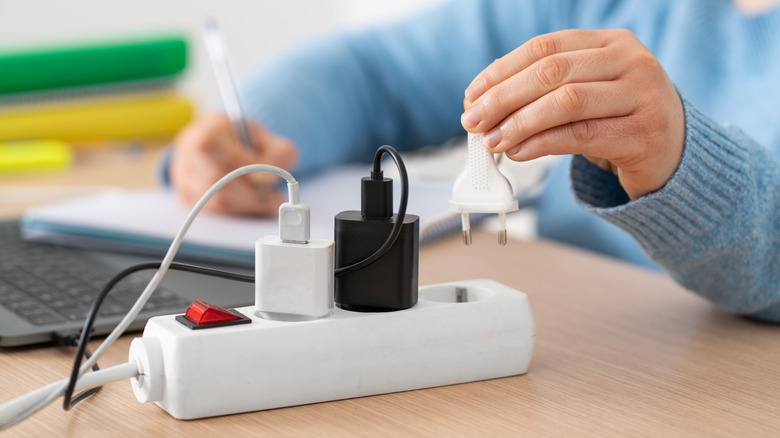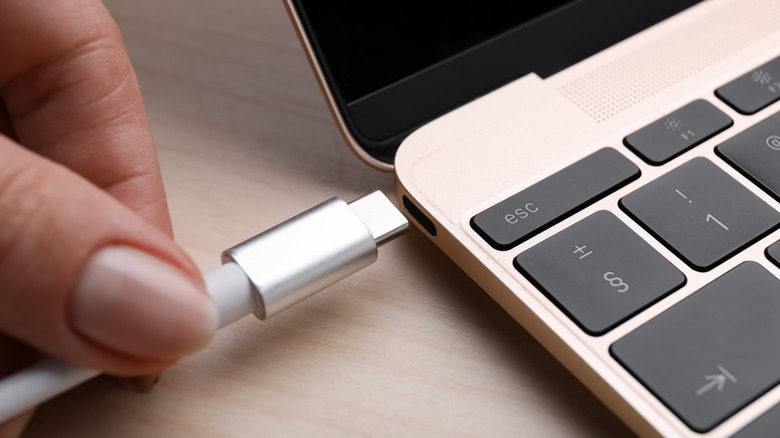Is It Safe To Leave Your Windows Laptop Plugged In All The Time?
In this digital age, where remote work is common – and we have the gadgets to optimize it – many people have a desk at home where their laptop is permanently kept. It is turned on in the morning and left on for most of the day, or even all day. Because the laptop might not travel outside its little home office, some may simply leave it permanently plugged in. Is this a good idea, though? Should your laptop be plugged in all the time?
The short answer is that it typically is not a big deal to keep your laptop plugged in while in use for convenience. However, there are some signs you should look out for that warn you that the laptop battery is suffering. Things like your computer feeling too hot and the fan making excessive noise are red flags. You should also unplug your laptop when not in use for the overall longevity of your battery, and when there are storms outside to avoid power surges.
The good news is that laptops these days are resilient and efficient. While older laptop battery models could suffer greatly from constantly being plugged in, modern laptop batteries are better.
Leaving your Windows laptop plugged in
The reason why keeping your laptop plugged in is not necessarily dangerous is because of the design of modern laptop batteries. They use trickle charging to keep the battery at full charge without overloading it with too much power. The black box on the charging cable also helps with power control. Newer laptops tend to handle being consistently plugged in better than older ones simply because of the wear and tear on the batteries with age.
You should also consider what your laptop gets used for. If you are mostly just logging into work systems and doing administrative work, it is easygoing on your laptop's power and thus, its battery. However, if you do activities regularly that demand a lot of power, such as PC gaming or video editing, it puts more of a strain on the laptop's power.
When your laptop uses a lot of power, it can begin to get very hot. You don't want a hot battery because that can damage it, and keeping it plugged in so that it draws more and more power over a prolonged period of gaming can damage it in the long run. In these cases, it's good to unplug your laptop so that it doesn't get overheated. On that note, leaving your laptop in direct sunlight or somewhere very cold also isn't good for it.
Other tips to keep in mind for your laptop
It's good to give your Windows laptop a break when it's not in use. Unplug it when you aren't actively on it. Turn it off overnight when no one will be using it for hours. Take advantage of things like Windows 11's energy saver mode. As time goes on, your laptop's battery can wear down. If you find you always have to plug it in just to keep it powered, then it's likely time for a new battery or a new laptop entirely.
Always purchase high-quality and reputable laptops, chargers, and batteries. These will perform well and have long lives. Low-quality, older, and damaged laptop parts can result in overheating when you leave your laptop plugged in.
A final thing to be cautious of if leaving your laptop plugged in all the time is high voltage from the wall outlet. Chaotic voltage or sudden surges of high voltage can damage your Windows laptop. This is usually something you don't have to worry about. However, things like thunderstorms or trees falling into a power line can cause these surges. A power strip can help protect a plugged-in laptop. If it is storming outside, though, it's best to unplug your laptop and not take the risk.


